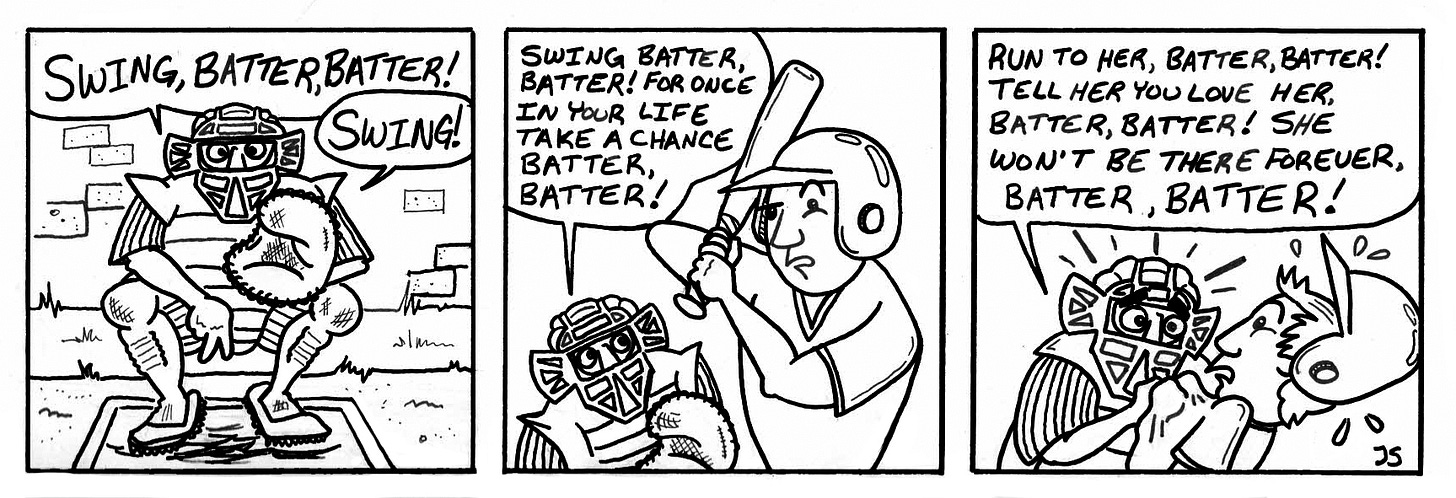The 19th volume of The Rialto Books Review, Song of the Broad-Axe Publications’ print journal, is now available. Included is a new essay from Eleanor McDowell, new fiction from Laura Hawbaker, Alexandra Ranieri and Russell Block, and comics from Jon Schuta. To purchase your copy today, click below.
Please enjoy these excerpts from The Rialto Books Review Vol. 019.
The Very Flowers of Imperialism:
British and Natural Imperialism in Wordsworth and Wilde
by Eleanor McDowell
The theme of imperial power is explored by William Wordsworth and Oscar Wilde to illustrate the global climate of their respective periods of time in the history of literature. While the Romantic period that Wordsworth occupied was heavily marked by the influence of the French Revolution and the budding whispers of what would become the British empire, the late Victorian era that Wilde orbited carried with it the burden of witnessing the pivotal moment in world leadership that resulted in the British empire swelling to a colossal size. In Wordsworth’s “Lines Written in Early Spring,” written in 1798, a reflection on the potential risk of man’s separation from the naturalistic world is illustrated through the Romantic sentiment. It is this quandary that sets the stage for Wilde’s 1895 The Importance of Being Earnest, which makes a significant effort to depict a world in which Wordsworth’s 1798 fear has become a reality—a world in which there exists no connection between humanity and the natural world, and which is instead a world of artificiality, heavily alluded to through subtle themes of corruption by imperialism.
Colorado
by Laura Hawbaker
Lynddy’s college dormmate Sarah looked exactly like Tippi Hedren. Wide-set blue eyes and pouty lips over a dainty doll chin, and an over-wide forehead framed by wavy blonde hair. So of course the ex-boyfriend, Joshua, was the most beautiful boy Lynddy had ever seen. Beautiful people spiral dance around each other like swallowtails.
Joshua came for Tippi four weeks into their freshman semester. He came for love.
His arrival was a rock dropped into the surface of a tucked away pond. He looked like Jack Kerouac. Traveled and rumpled. His skin was the color of a Bosc pear. When he knocked on their Printer’s Row dorm door, Lynddy blinked at him. She didn’t know such people were real.
“Is she here?” he asked, for they both knew, not knowing each other at all, who she was because she was certainly not Lynddy.
The Lighthouse
by Alexandra Ranieri
Part II
I had fallen in my sleep, and was winded; and I’m afraid that for a few seconds I resembled nothing so much as Kafka’s roach, on the morning of his unfortunate transformation. Once I had gotten my breath back I sat up and took stock of my surroundings.
Everything was exactly as I had left it the night before. In my dream I had knocked against my desk chair and overturned it in my haste to leave the room; this chair sat perfectly upright and demure. The window showed no sign of strain under conflict. As I moved slowly through the house, every object of which I had vivid memories of moving in dream, had moved in no way; all in the house was unchanged.
I say, all in the house was unchanged—this much is true. The change was in myself; for when I passed the great oak door, straining against its chains, I felt that which I had not felt before; namely, I was infected with a great desire to see the lake from the top of the tower.
The Battle of the Century
by Jon Schuta
The League of Berries and Laurels
by Russell Block
Chapter III
Alderman need to show their faces on Sundays, lest constituents come to believe about them what they already know, but the same is not required of those that draw from the shadow of the well that calls itself authority, one of whom is Mr. Kerrigan. By the time the first phenomena of experience are intuited, when all appears as open and full of potential as, truly, it is, the familiar mumbling, shuffling of papers, and the rude treatment of the receiver can be heard as it imbues the house. Quickly thereafter, the mysterious importunes are washed over by the dreaded, frenetic rousing of the house and its most vulnerable spiritual denizens. Ulie is called and called again, a call that is essentially no different from any articulation else, but this one is clamorous and demands heed be paid it.




